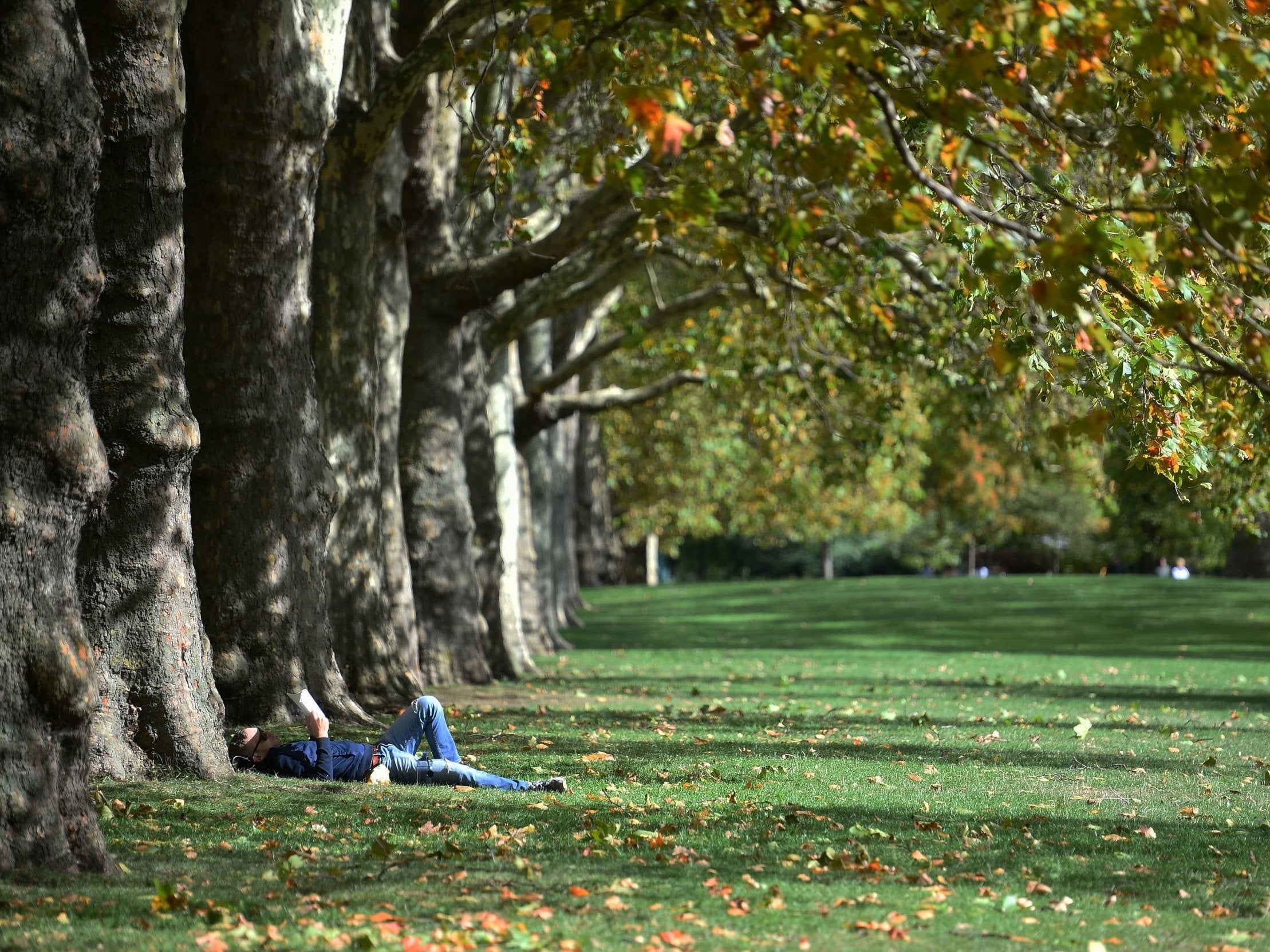UK weather: What is an Indian summer and will we see one this October?
Phrase dates back to 18th century America and refers to unseasonably warm autumn
After a summer heatwave, the UK was hammered by torrential rainfall over the weekend as a result of Storms Ali and Bronagh.
The British Isles will now experience a warm and settled autumn, according to the Met Office, a phenomenon known as an Indian summer.
But what precisely is it and how long might it last?
The phrase has been dated back to the 18th century. It was associated with Native Americans living on America's eastern seaboard, who would rely on the long summers to hunt and gather their crops in time for winter, a process that necessitated sunny, still conditions.
The Met Office Meteorological Glossary (1916) defines an Indian summer as “a warm, calm spell of weather occurring in autumn, especially in October and November.”
The warmest temperatures recorded in the UK in those months are 29.9C on 1 October 2011 in Gravesend, Kent and 21.7C on 4 November 1946 in Prestatyn, Denbighshire.

The Met Office’s latest forecast for this year predicts: “A north-south split [will develop] through the middle of the week, becoming cloudier and windy with some rain in the north but remaining settled, dry and mostly sunny in the south.
“Through the rest of September the weather should stay largely settled with long spells of sunshine and generally light winds. For October, settled and drier conditions are likely to dominate across many parts of the UK during the beginning of this period.”
For the most part, this promises to be beneficial, making for attractive autumn colour and prolonging the summer tourist season for seaside towns and beaches.
But confused plants can burst prematurely into flower, mistakenly believing it to be spring, setting them up for a rude awakening when winter does inevitably snap and cold nights bring frost.
Join our commenting forum
Join thought-provoking conversations, follow other Independent readers and see their replies
Comments
Bookmark popover
Removed from bookmarks